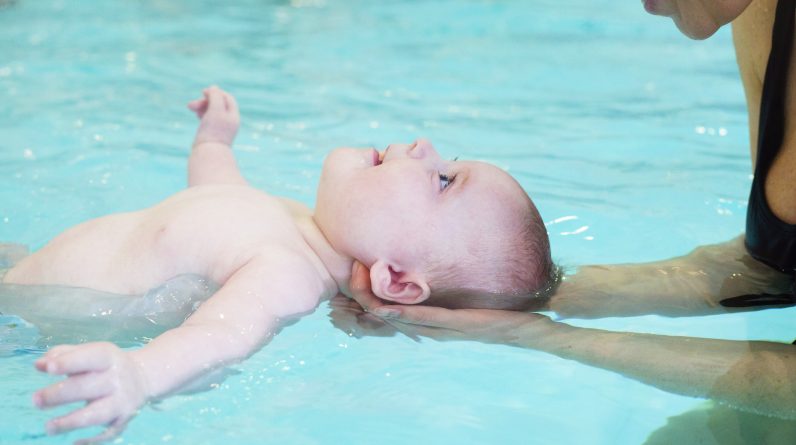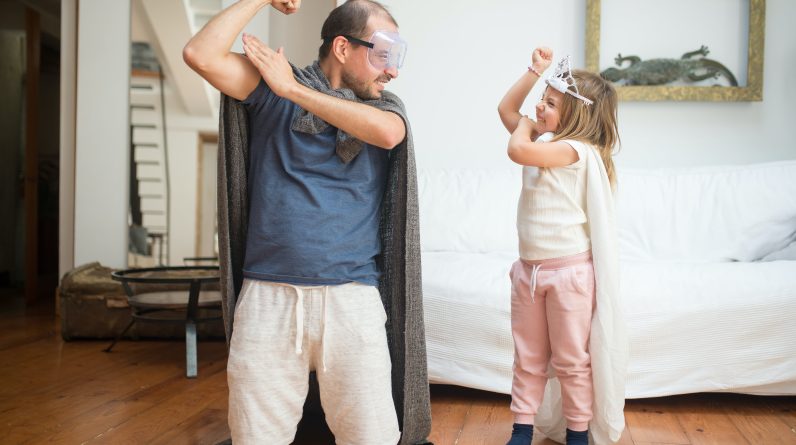
Swimming for infants: Does indoor swimming pools increase the risk of asthma?
In the case of asthma during childhood, the lungs and airways easily become irritated when exposed to specific triggers. These triggers include inhaling pollen, getting a cold or other respiratory infections. Childhood asthma can cause daily exhausting symptoms that prevent the child from playing, participating in sports, attending school, and sleeping. Failure to treat asthma in some children can lead to severe asthma attacks.
Childhood asthma is not different from asthma in adults, but children face different challenges. This medical condition is one of the reasons for visiting the emergency department, staying in the hospital, and missing school.
Unfortunately, asthma during childhood cannot be cured, and the symptoms may persist until adulthood. However, with proper treatment, you and your child can control the symptoms and prevent damage to the developing lungs.
Swimming is often considered a fun and beneficial activity for infants, promoting physical development and water familiarity. However, concerns have been raised about the potential link between indoor swimming pools and an increased risk of asthma development in infants.
Understanding Asthma and its Triggers:
Asthma is a chronic respiratory condition characterized by airway inflammation and recurring episodes of coughing, wheezing, and shortness of breath. Various factors can trigger asthma symptoms, including allergens, respiratory infections, exercise, and environmental irritants.
Symptoms
Common symptoms of childhood asthma include:
- Hearing wheezing or whistling sounds when exhaling.
- Shortness of breath.
- Chest congestion or tightness.
- Recurring cough that worsens when your child is:
- Infected with a viral illness.
- Sleeping.
- Engaging in physical activity.
- Exposed to cold air.
Childhood asthma may also cause:
- Sleep disturbances due to shortness of breath, coughing, or wheezing.
- Episodes of coughing or wheezing that worsen with a cold or flu.
- Delayed recovery or developing bronchitis after respiratory infections.
- Difficulty breathing that hinders the ability to play or participate in sports.
- Feeling tired, which can be a result of poor sleep.
Symptoms of asthma can vary from one child to another, and they may worsen or improve over time. Your child may exhibit only one symptom, such as persistent cough or chest congestion.
It can be challenging to determine whether the symptoms your child experiences are due to asthma. Wheezing and other similar symptoms could also be a result of infectious bronchitis or another respiratory condition.
When to see a doctor:
Take your child to the doctor if you suspect they have asthma. Early treatment will help control the symptoms and possibly prevent asthma attacks.
Schedule an appointment with your child’s pediatrician if you notice:
- Persistent or intermittent coughing, particularly related to physical activity.
- Wheezing or whistling sounds accompanying breathing.
- Shortness of breath or rapid breathing.
- Complaints of chest tightness.
- Recurring episodes of suspected bronchitis or pneumonia.
Children with asthma may express sensations like “I feel a tingling sensation in my chest” or “I cough all the time.” Therefore, pay attention to their cough, which may not wake them up during sleep. Crying, laughing, screaming, strong emotional reactions, and stress can also trigger coughing or wheezing.
If your child is diagnosed with asthma, creating an asthma action plan can help you manage the condition and guide other caregivers in monitoring symptoms and knowing what to do during an asthma attack.
Asthma Risk Higher For Infants Who Swim Indoors
Some studies suggest that infants who swim in chlorinated pools may have an increased risk of airway inflammation. However, there is currently insufficient evidence to definitively link infant swimming and asthma, so there is no need to prevent healthy babies from going to indoor pools.
The theory proposed by researchers is that chlorine, a common disinfectant used in pools, combines with sweat, dirt, skin cells, and urine from swimmers to create byproducts in the water and air. These byproducts could potentially harm an infant’s lungs and increase the risk of developing asthma. Indoor pools tend to have higher concentrations of these byproducts compared to outdoor pools. Infants may be particularly vulnerable because their lungs are still developing, and they may ingest water containing irritants while swimming.
However, studies investigating the relationship between infant swimming and asthma have produced conflicting results, highlighting the need for further research.
If your baby participates in indoor infant swimming and you are concerned about asthma, it is recommended to choose a well-ventilated facility. Ideally, the pool area should have open doors and windows, and fans can be used to improve air circulation, especially when the pool is crowded. Additionally, it is advisable to rinse yourself and your baby in the shower before entering and after leaving the pool, wear a swim cap, and regularly check your baby’s diaper. These measures can help reduce the presence of irritants in the water and air.
There are plenty of reasons why it’s a good idea to take your baby swimming:
There are several reasons why it’s beneficial to take your baby swimming:
Water familiarity: Introducing your baby to water from an early age helps them become familiar and comfortable in an aquatic environment. This can contribute to their water confidence as they grow older.
Physical development: Swimming provides an excellent opportunity for babies to engage in physical activity. It promotes motor skills, muscle strength, coordination, and overall physical development.
Sensory stimulation: The sensation of being in the water stimulates your baby’s senses, including touch, sight, and hearing. It can be a multi-sensory experience that enhances their cognitive and sensory development.
Bonding and social interaction:
Swimming with your baby creates a special bonding experience. It allows for quality one-on-one time, fostering a stronger parent-child relationship. It also offers opportunities for your baby to interact with other children and develop social skills.
Water safety awareness: Early exposure to swimming can help instill a respect and understanding of water safety. Babies can learn basic water skills, such as floating or kicking, under the guidance of a responsible adult. This can be an important foundation for future water safety practices.
Relaxation and sensory relief: Water has a soothing effect on babies and can help them relax. It may provide relief for babies with sensory sensitivities or certain physical conditions.
Stimulating environment: Swimming pools often have bright colors, playful designs, and interactive features that can capture your baby’s attention and stimulate their curiosity.
Family fun: Taking your baby swimming can be an enjoyable family activity. It provides an opportunity for everyone to have fun together and create lasting memories.
Remember to always prioritize safety when swimming with your baby. Ensure proper supervision, choose appropriate swimming locations, and follow any guidelines or recommendations provided by swimming instructors or professionals.
Essential Guidelines for Pool Safety and Parental Supervision
Parental supervision: Infants should always be closely supervised by a responsible adult while in or around a swimming pool. Ensure that an adult who can swim is within arm’s reach of the infant at all times.
Choose appropriate pools: Opt for pools specifically designed for infants or young children, such as shallow wading pools or baby pools. These pools are typically smaller in size and have shallower water levels, providing a safer environment for infants to play and explore.
Water temperature: Ensure that the water temperature in the pool is comfortable for the infant. It is generally recommended to maintain the water temperature between 32-34 degrees Celsius (89-93 degrees Fahrenheit) for infants.
Water quality:
Regularly check and maintain proper water quality in the pool to prevent any potential contamination or health risks. Follow the recommended guidelines for pool maintenance and water treatment, such as appropriate levels of chlorine or other disinfectants.
Sun protection: Infants have delicate skin and are more susceptible to sunburn. Make sure to provide adequate sun protection by applying sunscreen with a high SPF, using protective clothing, and providing shade in the pool area.
Gradual introduction: If it is the infant’s first experience in a swimming pool, it is recommended to start with short sessions of water play to allow them to become familiar with the new environment gradually.
Water safety education: Parents or guardians should be knowledgeable about basic water safety practices, including CPR for infants, in case of emergencies. It is advisable to take swimming and water safety classes yourself to enhance your skills and knowledge.
Use appropriate flotation devices:
For infants who are not yet able to swim independently, use approved flotation devices specifically designed for their age and weight. These devices should be properly fitted and provide adequate support to ensure the infant’s safety.
Remember that every child is unique, and their readiness for swimming or water activities may vary. It is important to consider their individual developmental stage, comfort level, and any specific recommendations from healthcare professionals before introducing them to swimming pools or water activities.
While concerns have been raised regarding the link between indoor swimming pools and asthma risk in infants, the current evidence does not provide conclusive support for such claims. Indoor swimming pools can be enjoyed safely by infants, provided appropriate preventive measures and mitigation strategies are in place. Further research is needed to better understand the potential effects of pool environments on infant respiratory health.
As always, consulting with healthcare professionals can provide personalized advice and guidance based on an individual infant’s needs and medical history.






